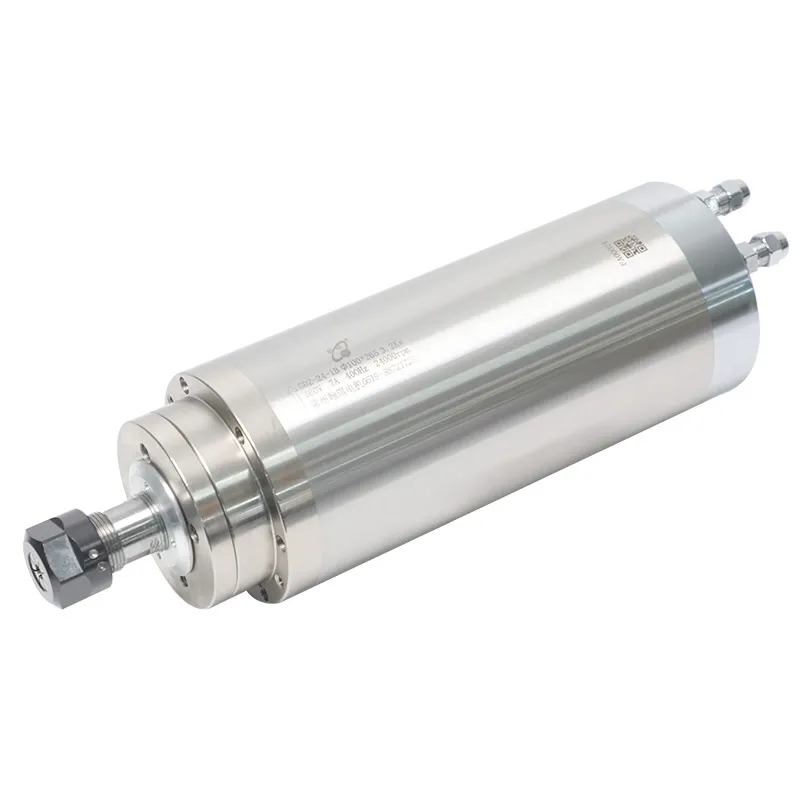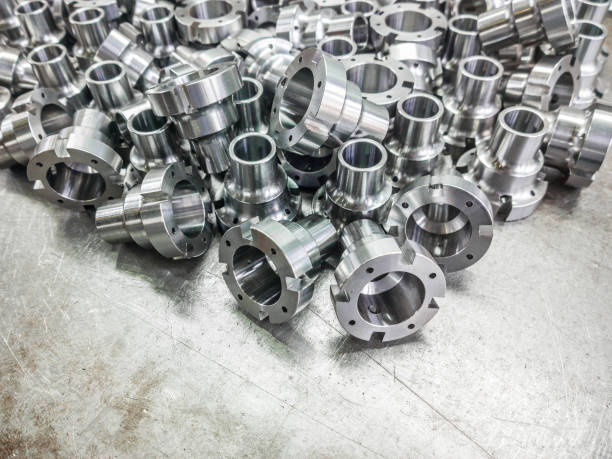The world of CNC (Computer Numerical Control) machining is continuously evolving, and CNC technicians are at the heart of this revolution. If you’ve been wondering, “How much do CNC technicians make?”, you are not alone. This is a common question for those considering a career in CNC machining or those who are already part of the manufacturing industry but curious about the earning potential in this role. This article will explore the various factors affecting CNC technician salaries, including experience, geographic location, and industry demand.
Understanding the Role of a CNC Technician
A CNC technician plays a crucial role in modern manufacturing, handling and maintaining CNC machines. These technicians are responsible for ensuring that machines run smoothly, programming them for specific tasks, and troubleshooting any issues that may arise. The job can be demanding but also incredibly rewarding, as CNC technicians work at the cutting edge of technology, helping to craft parts for industries ranging from automotive to aerospace.
CNC technicians may also work closely with CNC machinists, engineers, and production managers to optimize the manufacturing process. In most cases, they need a solid understanding of how to operate CNC lathes, mills, and other precision machinery.
Factors That Influence CNC Technician Salaries
The salary of a CNC technician is influenced by multiple factors that vary from one job to another. Here, we will break down the most common factors that impact earnings.
1. Experience Level
Just like any other job, the more experience you have, the higher your earning potential. Entry-level CNC technicians usually earn a lower salary compared to those with several years of experience.
- Entry-Level: Beginners can expect to make anywhere between $30,000 – $40,000 annually. These technicians often receive basic training in operating and maintaining CNC machinery, with little to no prior experience.
- Mid-Level: After gaining a few years of hands-on experience, mid-level CNC technicians can earn salaries ranging from $45,000 – $60,000. This range depends heavily on their skill set and proficiency in programming and troubleshooting.
- Senior-Level: Experienced CNC technicians can command salaries upwards of $70,000, especially if they have expertise in specific machines, complex programming skills, and a proven track record of maintenance and repair. This expertise makes them extremely valuable in the industry.
2. Geographical Location
Location plays a significant role in determining how much CNC technicians can earn. Salaries vary considerably across different states and cities.
- High-Demand Areas: Major manufacturing hubs like California, Texas, and Michigan tend to offer higher salaries due to increased demand for skilled CNC technicians. In these areas, average salaries can be as high as $60,000 – $75,000.
- Rural Areas: In areas where manufacturing isn’t as prevalent, salaries can be lower, often ranging from $35,000 – $45,000.
Tip: For those willing to relocate, high-demand areas offer better opportunities, not just in terms of salary but also for professional growth.
3. Industry
The specific industry a CNC technician works in also influences pay scales.
- Aerospace: This industry typically pays more due to the high precision required in producing parts. CNC technicians here can earn salaries from $60,000 – $85,000.
- Automotive: The automotive sector has steady demand and generally pays well, with salaries typically ranging from $50,000 – $70,000.
- Medical Devices: Similar to aerospace, the medical device industry requires high precision, leading to salaries between $55,000 – $80,000 for CNC technicians.
Top Industries Employing CNC Technicians
1. Aerospace and Defense
The aerospace and defense industry employs a significant number of CNC technicians to create intricate parts for aircraft and defense equipment. These industries require high precision and reliability, making skilled CNC technicians invaluable.
2. Automotive Manufacturing
Automotive manufacturing is another industry where CNC technicians play a crucial role. From building engine components to crafting intricate dashboards, CNC technicians are pivotal in automotive production lines. This industry often pays above-average salaries, especially for technicians skilled in complex 5-axis CNC machines.
3. Medical Device Manufacturing
In medical device manufacturing, CNC technicians are responsible for creating parts for surgical instruments, implants, and other medical tools. The precision needed in this field is extremely high, contributing to higher-than-average salaries.
Educational Requirements and Certifications for CNC Technicians
While some CNC technicians enter the field with only a high school diploma, more advanced roles typically require formal training, such as an associate degree in machine tool technology or a related field. Here are some ways CNC technicians can increase their earning potential:
1. Associate Degree Programs
Completing an associate degree in CNC machining or industrial technology is a solid path into the industry. These programs provide students with both the technical knowledge and hands-on experience needed for the job.
2. Certifications
Obtaining relevant certifications is another way to stand out in the field and potentially earn more.
- NIMS Certification: The National Institute for Metalworking Skills (NIMS) offers certifications in CNC programming and machining that can significantly boost a technician’s earning potential.
- HAAS Certification: Many CNC technicians specialize in particular machines. HAAS-certified operators and technicians, for instance, are highly sought after and often receive higher pay.
Tip: Certifications not only help in getting a higher salary but also ensure job stability, as many companies look for specialized skills when hiring.
Average Salary by Job Title in CNC Field
CNC technician salaries vary depending on the specific title or role within the field. Below is a summary of common CNC roles and their respective average salaries:
| Job Title | Average Annual Salary |
|---|---|
| CNC Technician | $50,000 – $65,000 |
| CNC Operator | $40,000 – $50,000 |
| CNC Machinist | $45,000 – $60,000 |
| CNC Programmer | $55,000 – $75,000 |
| CNC Field Service Engineer | $65,000 – $85,000 |
How CNC Technician Salaries Compare to Other Roles
CNC Technicians can earn competitive salaries compared to other manufacturing and technical roles. For instance:
- CNC Machinists typically earn slightly less compared to technicians since they focus more on operating the machinery rather than maintaining or programming it.
- CNC Programmers tend to earn more due to the specialized skills required in programming the G-code necessary for the machines to function effectively.
- Field Service Engineers are at the higher end of the spectrum, often commanding higher pay due to the nature of troubleshooting and maintaining various CNC systems at client locations.
Job Outlook and Career Growth Opportunities
The job outlook for CNC technicians is promising, especially as industries increasingly look towards automation and precision manufacturing to remain competitive. According to the Bureau of Labor Statistics, employment in CNC-related jobs is projected to grow over the next decade, particularly in sectors such as aerospace, medical equipment, and automotive industries.
1. Specialization Opportunities
Technicians who specialize in specific industries or types of CNC machinery can find more opportunities for career growth. For example, a technician with expertise in 5-axis CNC machines is more likely to find high-paying opportunities.
2. Shift to Automation
As the manufacturing industry shifts towards increased automation, the role of CNC technicians will also evolve. Those who are proficient in automation control systems and have a strong understanding of industrial robotics will have even more opportunities for career advancement.
Tips for Boosting Your Salary as a CNC Technician
If you’re aiming to increase your earning potential as a CNC technician, here are some practical tips:
- Invest in Ongoing Training: As technology evolves, CNC machines are becoming more sophisticated. By taking courses in CAD/CAM software and newer CNC technologies, you can improve your skills and command a higher salary.
- Obtain Advanced Certifications: Seek certifications in popular CNC machine brands like HAAS or FANUC. Such certifications add value to your resume.
- Gain Experience in High-Demand Sectors: Moving to industries like aerospace or medical devices can provide higher salaries due to the precision required in these fields.
Recommended CNC Spindle Motors for Quality Performance
Choosing the right spindle motor for your CNC machine can significantly impact both the quality of your work and efficiency. Here are some highly recommended options:
- 24000RPM 3.2KW ER20 Water-Cooled Spindle: This spindle is designed for high-speed operations, making it perfect for a variety of tasks.

- 2.2KW ER20 Air-Cooled Spindle: Versatile and reliable, ideal for beginners as well as experienced machinists.

For more options, explore our complete selection of CNC Spindle Motors.
Conclusion
The salary for a CNC technician can vary widely based on experience, industry, and location. However, it’s clear that CNC technicians can earn a solid income, especially when they build up their skills and specialize in high-demand areas. The career itself is both rewarding and full of potential for growth, particularly as industries move towards more automation and precision manufacturing.
If you’re considering a career as a CNC technician or looking to improve your current standing, investing in further education, getting relevant certifications, and keeping abreast of the latest technologies are key ways to enhance your prospects and salary. Explore our spindle motors for reliable and high-quality solutions that help you succeed in your CNC journey.
Frequently Asked Questions
1. How much does an entry-level CNC technician make?
An entry-level CNC technician can make between $30,000 – $40,000 annually, depending on the region and the industry they are working in.
2. Which industry pays CNC technicians the most?
Industries like aerospace and medical devices typically pay CNC technicians the most due to the precision and complexity involved in their products.
3. What certifications are beneficial for CNC technicians?
NIMS certification and HAAS-certified operator credentials are highly beneficial for CNC technicians looking to advance their careers and earn higher salaries.
4. Can CNC technicians work in multiple industries?
Yes, CNC technicians have versatile skills that allow them to work in various industries, such as automotive, aerospace, medical devices, and defense.
5. How can I increase my salary as a CNC technician?
To increase your salary, consider gaining advanced certifications, specializing in high-demand sectors, and continuously updating your skills with the latest CNC technologies.

